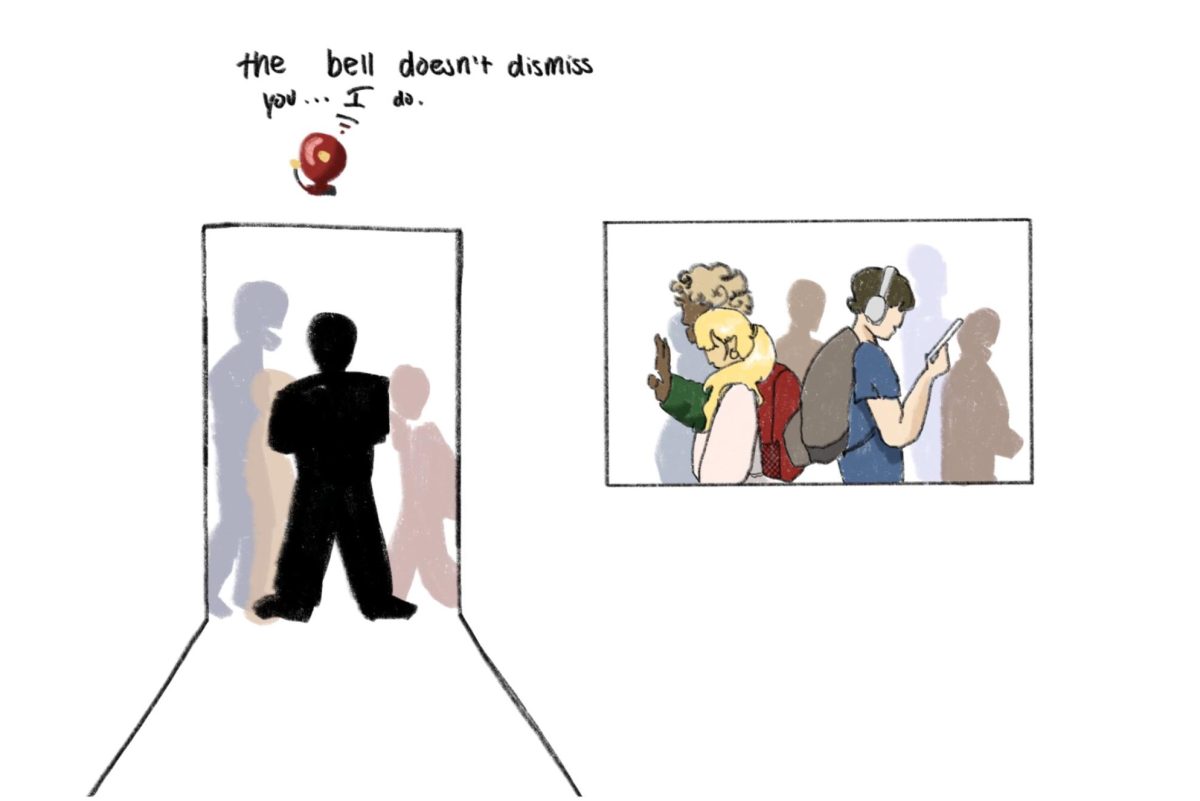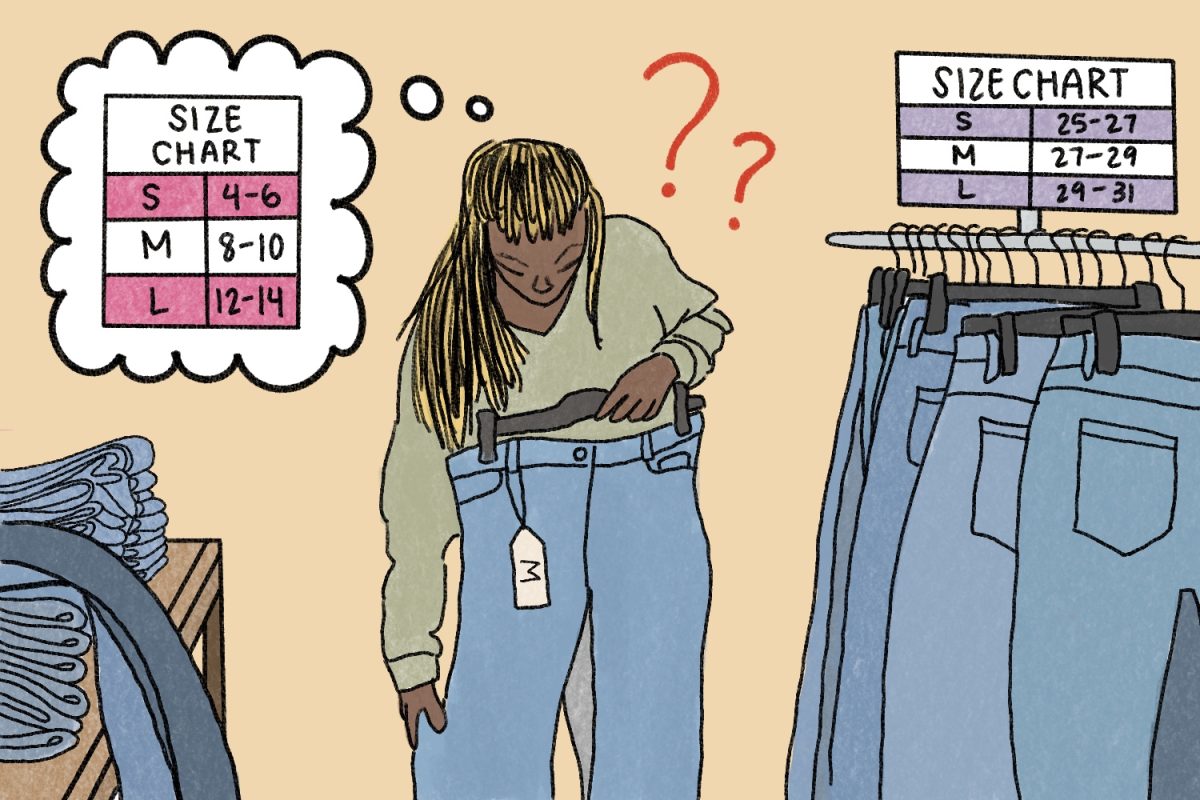Many students have been late to class at least once this year. However, most students are unaware that the tardy policy at Carlmont is different this year — what they do know is that the administration expects them to take responsibility for getting to classes on time.
There are teachers across the subjects who hold their students past the bell. While administration expects students to simply tell a teacher who extends essay writing time or teaches past the bell, “I have to leave to be on time for my next class,” the reality for students is much more complicated.
While it is on the teachers to dismiss their students on time, when they don’t, the students are harmed. Some teachers simply do not allow students to pack up their belongings before the bell rings, taking off participation points if they catch someone in the act; others don’t let students leave until they are finished teaching; and others provide supplementary time for students to finish essays after class ends, leaving students who leave at the bell disadvantaged. Although students are responsible for being on time, many situations delay their arrival at their next classes — and they’re largely out of students’ hands.
Carlmont’s passing period gives students just enough time to power walk from one end of campus to the other. When they aren’t given the seven minutes, it is much harder for students to be on time for their next classes, since it simply does not account for strict teachers or long-winded lessons.
At Carlmont, specific tardy policies are left to teachers. Students may notice that each of their teacher’s syllabi varies rules and enforcement significantly.
While some teachers take off points if students aren’t in their seats with materials out by the bell, others are much more lenient. Some teachers excuse their lengthy lessons, assuring students that they will send the teachers an email late pass, or even write one for individual students — while others refuse to take teacher-issued passes altogether.
Carlmont’s new tardy policy recommends Assistant Vice Principal intervention and detention upon students’ fourth tardy and beyond. However, although some teachers follow the administration’s recommendation closely, others do not, as enforcement of this policy is also left up to teachers’ preferences. There are teachers who do not assign detention for tardiness at all, while others deduct points and mandate detention as early as the second offense.
But there is an issue with the new policy, whether teachers choose to follow it or not. This year, there are no consequences for absences, excused or unexcused.
So, what is stopping students who are running late from just skipping class entirely? The only consequence of absence would be missing material, while arriving late would mean facing detention.
The Carlmont tardy policy is flawed because it places more emphasis on punctuality than attendance, and while inconsistencies between teachers can exaggerate the policy, they can also make it hard for students to be punctual.
The issue of standardization seems more important than detention or harsh consequences for being tardy. Students are tasked with committing up to seven different tardy policies to memory each year, depending on the variation of teachers they are assigned.
All teachers should be required to let their students out on time: flex periods are available to supplement classes, Canvas allows teachers to send instructional materials to students asynchronously, and there are probably many more solutions to limited teaching time that could be discussed between teachers and administration.
Carlmont’s new policy is not perfect, but before it can be changed, teachers’ tardy policies need to be clearly defined and regularized — to better account for factors that students can’t control.
*This editorial reflects the views of the Editorial Board and was written by Rachel Alcazar. The Editorial Board voted 13 in agreement, 1 somewhat in agreement, and 1 refrained from voting.













